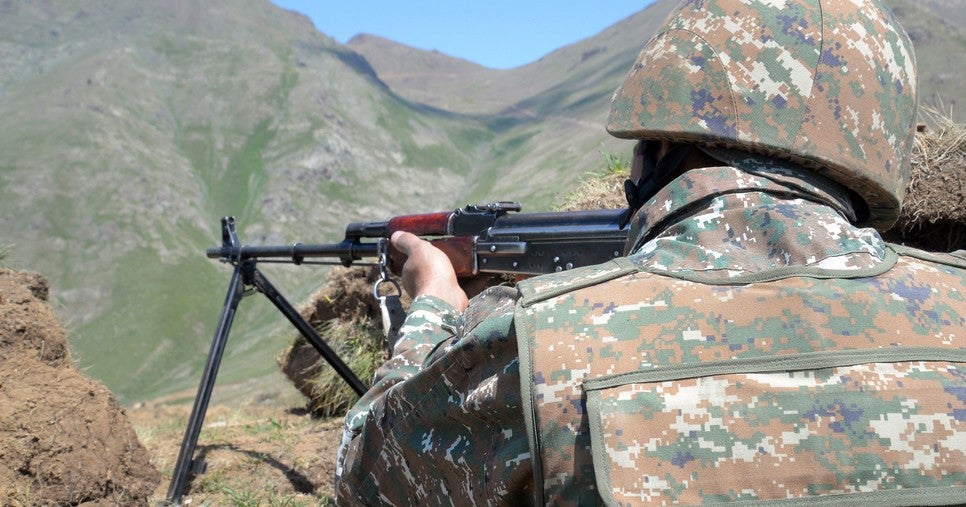Azerbaijan Accuses Armenia Of Violating Ceasefire Amidst Border Dispute
Azerbaijan’s Ministry of Defense today accused the Armenian military of violating the November ceasefire that ended the war for Nagorno-Karabakh.
In a press release issued today, Azerbaijan Army positions in the Kalbajar and Gadabay regions are said to have “periodically” taken small arms fire from Armenian Army positions in Armenia’s Gegharkunik region over the past three days. Armenian forces are also claimed to have fired shots into the air “in the direction” of Azerbaijani positions around Shusha. The ministry says that Azerbaijani forces did not retaliate to the violations, and no Azerbaijani losses were sustained in the incidents. In their own statement, the Armenian defense ministry denied that Armenian forces opened fire on any of the days in question.
The accusations of ceasefire violations come as a border dispute between both nations continues into a third week, with Baku denying Yerevan’s accusations that Azerbaijani forces have crossed as far as two kilometers into Armenian territory near Lake Sev. While talks between both governments continue with Russian mediation, the situation on the ground is decidedly precarious, with the Armenian Defense Ministry reporting on Tuesday that an Armenian serviceman had died after being shot by Azerbaijani soldiers in a brief skirmish. Azerbaijan denies the accusation, claiming that the serviceman died in an accident.
In addition to negotiations between both countries, Armenia has sought support from the Collective Security Treaty Organization (CSTO) since the first reports of an incursion. However, Prime Minister Nikol Pashinyan today said in parliament that he was “not satisfied with the pace of the CSTO actions” supporting Armenia, noting that despite a private stance backing that of Armenia demanding the withdrawal of Azerbaijani forces, the CSTO has yet to make a public statement to that extent. According to him, Yerevan is not ruling out the possibility of making a request to the UN Security Council, should CSTO and Russian support be insufficient.
At the heart of the ongoing dispute is the demarcation of the border between Armenia and Azerbaijan in the Lake Sev area, with both claiming that Soviet-era maps back their respective claims around the lake, which sits on the border between the countries. While Pashinyan said late last week that both countries will be forming a joint commission to demarcate the border, the death of the Armenian soldier and Baku’s latest counteraccusations do not bode well for Armenian public support of such efforts, especially critical for Pashinyan’s political future given Armenian parliamentary elections to be held next month. The elections are being held two years ahead of schedule, in a bid to defuse the ongoing political crisis that has gripped Armenia since the ceasefire was announced.

